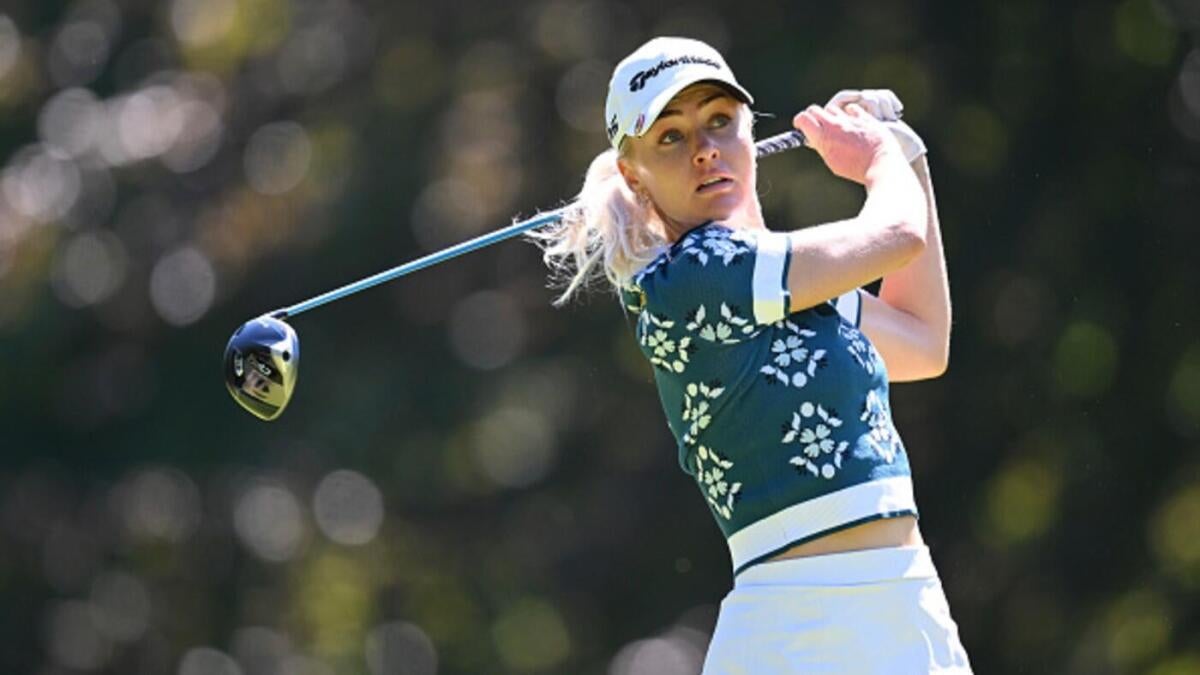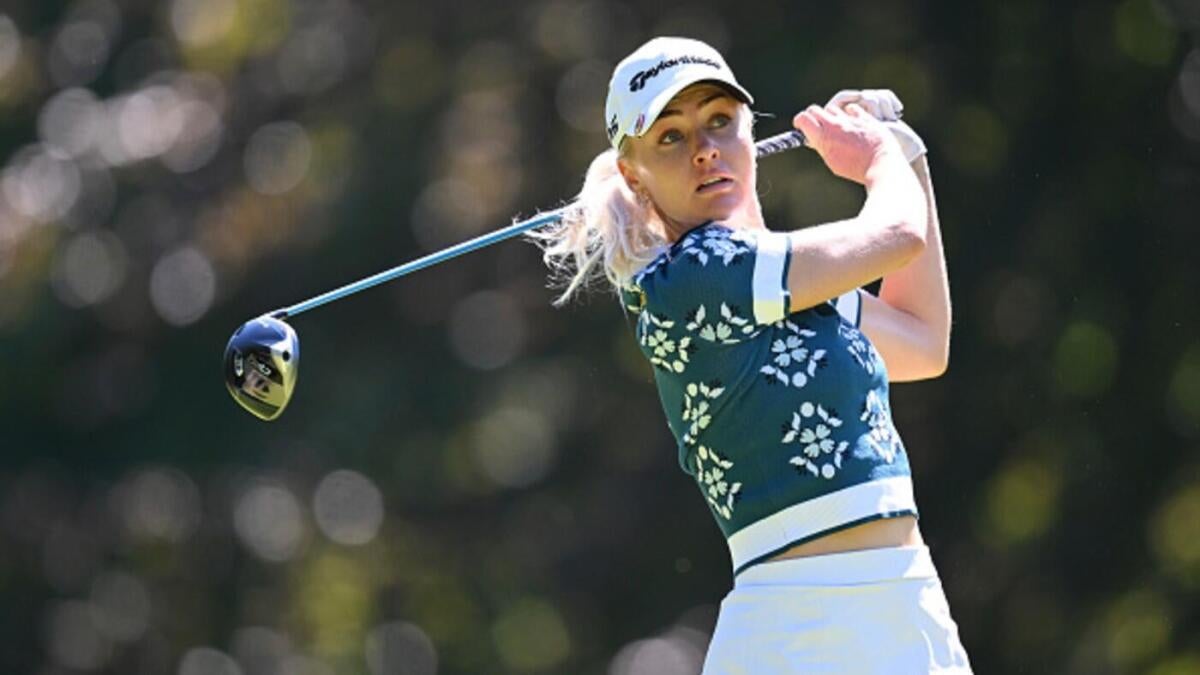Charley Hull’s withdrawal from the Amundi Evian Championship has sparked widespread concern and discussion within the golfing community. The incident, marked by two collapses on the fourth tee box, has raised questions about athlete health, the pressures of professional sports, and the support systems in place for elite golfers. This analysis delves into the events surrounding Hull’s withdrawal, explores potential causes, and examines the broader implications for athlete well-being.
The Unfolding of a Concerning Incident
The first round of the Evian Championship took an unexpected turn when Charley Hull, a 29-year-old English golfer, exhibited signs of distress. Reports indicate that she appeared unwell even before reaching the fourth hole. On the third hole, she briefly collapsed while attempting to exit a greenside bunker, a concerning sign that she was not in optimal condition. Despite this, Hull continued to play, demonstrating her determination and commitment to the tournament.
However, the situation escalated dramatically on the fourth tee box. Hull collapsed twice, prompting immediate medical attention. After a 15-minute medical break, she attempted to play, even hitting her tee shot after the first collapse, but succumbed again, making it clear that she could not continue. This sequence of events led to her withdrawal from the tournament, a decision that was undoubtedly difficult but necessary for her well-being.
Potential Causes and Medical Speculation
While the exact cause of Hull’s collapses remains unconfirmed, early reports suggest that she had been battling a virus in the days leading up to the championship. This information, while not definitive, provides a potential explanation for her sudden physical distress. A viral infection could lead to weakness, dehydration, and other symptoms that could contribute to a collapse, especially under the physical demands of professional golf.
It is crucial to approach speculation about an athlete’s health with caution. Drawing conclusions without concrete evidence can be premature and potentially inaccurate. However, the available information strongly suggests that an underlying illness played a significant role in Hull’s withdrawal. The golfing community and medical professionals will likely continue to monitor her condition to ensure a full recovery.
The Immediate Aftermath and Community Response
Following her withdrawal, Hull was taken off the course on a stretcher, transported by a golf buggy. The images of her being carried away have understandably caused concern among fans and fellow players. Her condition prompted an outpouring of support and well-wishes from the golfing community, highlighting her popularity and the collective concern for her well-being.
The focus now shifts to her recovery and ensuring she receives the necessary medical care. The LPGA will likely provide support and resources to aid in her recovery, and her fans will be eagerly awaiting updates on her condition. The incident serves as a reminder of the importance of prioritizing athlete health and well-being, even in the high-stakes world of professional sports.
The Impact on the Tournament and Athlete Well-being
Hull’s withdrawal undoubtedly cast a shadow over the Evian Championship. As a prominent player and a two-time winner on the LPGA Tour, her absence is a loss for the tournament. Her engaging personality and competitive spirit are missed by both fellow golfers and fans. Beyond the competitive aspect, her sudden illness serves as a stark reminder of the physical and mental demands placed on professional athletes.
The pressure to perform, combined with the rigors of travel and competition, can take a toll on even the most resilient individuals. Ensuring access to comprehensive medical care, promoting open communication about health concerns, and fostering a culture that values well-being over relentless performance are essential steps in protecting athletes. The incident involving Hull should serve as a wake-up call to re-evaluate the support systems in place for professional golfers and athletes in general.
A Broader Context: Athlete Health and Support Systems
Charley Hull’s experience underscores the importance of prioritizing athlete health and well-being. In the high-stakes world of professional sports, the focus often centers on performance and results. However, it is crucial to recognize that athletes are human beings with physical and emotional needs. The incident at the Evian Championship highlights the need for robust support systems to ensure that athletes can perform at their best while maintaining their health.
The golfing community and sports organizations must continue to advocate for better medical care, mental health support, and a culture that encourages athletes to speak openly about their health concerns. The incident involving Hull provides an opportunity to reflect on these issues and make meaningful changes to support the well-being of professional athletes.
Conclusion
Charley Hull’s withdrawal from the Amundi Evian Championship has brought to light the critical importance of athlete health and well-being. The incident serves as a reminder that even the most accomplished athletes are vulnerable to illness and that their health should always be paramount. As Hull begins her recovery, she has the support of her fans, fellow players, and the entire golfing world. Her resilience and determination will undoubtedly serve her well as she focuses on regaining her health and returning to the sport she loves. The incident also serves as a vital lesson about the necessity of prioritizing one’s health above all else, even in the face of immense pressure and competition. May her experience prompt a broader dialogue on athlete welfare and encourage a more holistic approach to professional sports.












